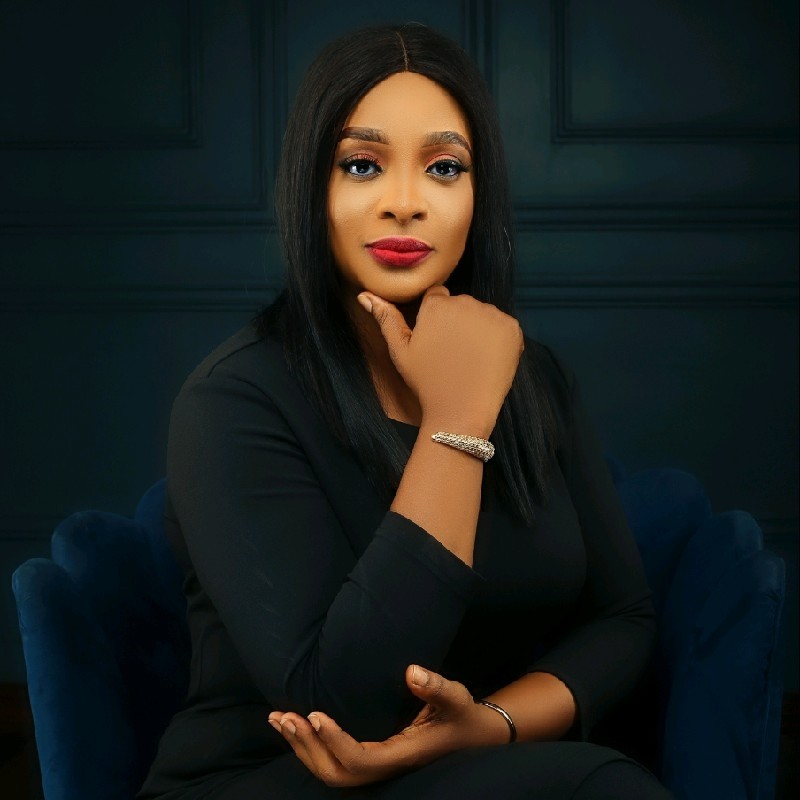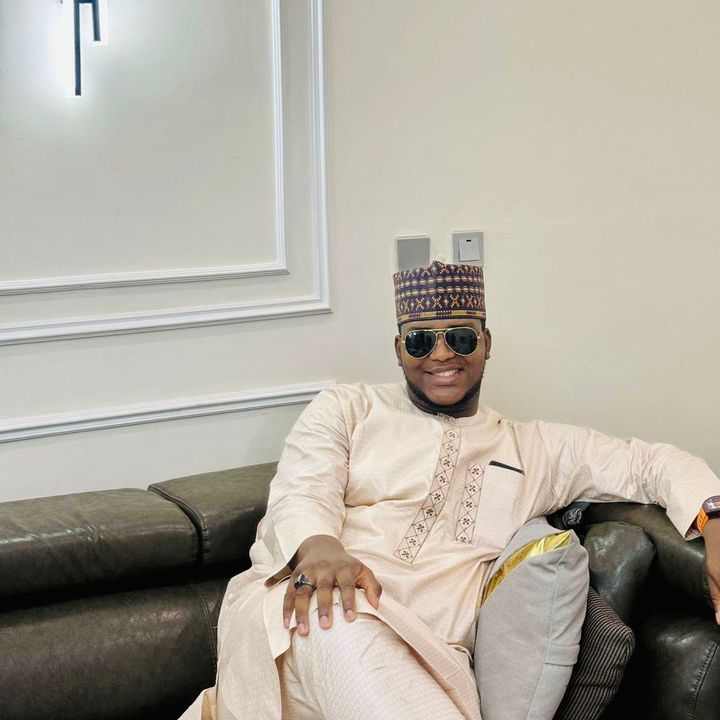
In this compelling conversation, Dr. Ninnah Samuel founder of Nynnah Attorneys shares her remarkable rise from humble beginnings to becoming a force in business and technology law. She opens up about her values, failures, faith, and fierce commitment to integrity, offering real insight and inspiration for a new generation of African changemakers.
Can you take us back to your childhood? What was growing up like for you? And what core values shaped your life, especially your career? How did your parents influence your upbringing?
I was born and raised in the Benin Republic. So, it was a different environment altogether. My parents were clergy in one of the Orthodox churches—the Assemblies of God Church. The values we grew up with were deeply spiritual. It was a very religious upbringing.
We were taught early on—especially in Sunday school—not to lie, to be transparent, and to uphold integrity. Our parents emphasized that certain actions could keep you from making heaven, in quotes. So, those principles really guided how we related with others, even when our parents weren’t around.
We didn’t grow up with a silver spoon, but we knew what to do and what not to do. It was more about morals.
Tell us about your journey in education.
My journey to acquiring quality education was very challenging. I really suffered to get to where I am today. It’s funny now, but I dropped out of school several times. I think my last class in school was JSS1 or JSS2. After that, I started selling recharge cards to survive. I saved up enough money to sit for my GCE.
I had always wanted to become a lawyer, even though my parents couldn’t afford to sponsor us through school.
What sparked your interest in business and technology law? Was there a defining moment or experience that solidified your decision to specialize in this field?
Well, at first, I studied law because I wanted to fight for justice—especially for the masses. I felt that in society, there are certain classes of people who are not treated fairly. That passion for justice was what drove me.
But as time went on, I began exploring other areas of law—ways I could still serve society and advocate for those who are often overlooked or simply ignorant of their rights.
The defining moment for me came when someone approached me with a story. He had this brilliant idea, which he shared with a big man—a prominent figure. Unfortunately, the man executed the idea without giving the young man any credit or compensation.
I decided to reach out to the man and his company, but their response was that “the idea could have come from anybody.” When I looked at the merit of the case, it was clearly the boy’s idea. He was around 23 years old at the time, and I believe they dismissed him because of his age or simply thought he couldn’t do anything about it.
I took up the case and challenged the man and his company. Afterward, I reflected deeply—business, technology… how else could we educate people about protecting their intellectual property?
That case changed everything for me. It was the shift from general humanitarian law to business and technology law.

So, in essence, it wasn’t your original intention to go into business and tech law?
No, not at all. It wasn’t my intention. But I realized that many people don’t know how to protect their business ideas and intellectual property. That’s what inspired the transition.
How was the switch for you? Was it difficult moving into this specialization?
One thing about law is that it gives you a solid foundation. Even in law school, what they teach is foundational. I think there are four core areas they focus on—Nigerian legal system, administrative law, and a few others—but they don’t really specialize.
So when you come out, you’re expected to find your niche. Even in some master’s programs that aren’t specialized, you still don’t get much depth in a specific area. You have to find your path, explore, and build expertise from there.
The legal profession—especially tech law—is traditionally male-dominated. What challenges did you face as a woman, and how did you overcome them?
One of the most common reactions I get, even outside tech law, is skepticism. People see you and whisper, or some even boldly question, “Is she a woman? What’s she doing here? Can she handle this?”
I remember being involved in a murder case a few years ago. When I arrived at the police station, the reaction was, “Is she a woman?” It was disheartening and, sadly, very common. Such attitudes discourage many women from stepping into certain spaces.
So, I decided to build two things: credibility and competence. Once people see you as credible, and then they witness your competence, things start to change. When you consistently deliver results, handle cases successfully, and demonstrate deep knowledge, people start to trust you. That’s how you silence the doubters.
One breakthrough for me was a case involving a prominent company that failed to implement key corporate governance policies. There was a lack of transparency, mismanagement of funds, and weak accountability structures. We handled the case, and it served as a wake-up call for many within that organization.
Another milestone was a high-profile data privacy case involving a telecommunications company. The company shared private chats belonging to a customer without consent—not from the court, not from the individual. Even though the recipient was the customer’s spouse, it was still a violation.
Many people don’t understand that data privacy is a right. Your phone number, private messages, or even your presence at a particular location—these are sensitive data points. And without consent, no one should be sharing them. That case made me realize how much awareness we need to raise in Nigeria and across Africa about data protection and privacy.
Many people don’t fully understand the different branches of law, including Nigerian technology law. Can you explain what tech law covers and how legal frameworks are adapting to the fast-changing digital world and economy?
Technology law is a distinct and emerging branch of law. It’s relatively new, especially in Nigeria. In fact, I wrote a book titled Introduction to Technology Law in Nigeria. The field evolved alongside the growth of technology itself—and as you know, technology is still developing here in Africa and in many other third-world countries.
Sometimes, I feel like technology was just “poured” on us without enough time to learn the rules, regulations, or responsible use. Tech law covers how we communicate over the internet, how we use our phones and other digital or electronic devices—and importantly, the legal limits involved.
For example, what is the boundary of what you can say online? How far is too far when reaching out to someone digitally? If you keep calling someone in a way that disturbs their peace or causes discomfort, it becomes harassment. If you constantly track someone’s movements online—monitoring their posts, programs, and showing up where they go—that behavior qualifies as cyberstalking.
Also, when someone repeatedly insults or defames another person online, especially under their posts or in public comments, that constitutes cyber-harassment. People don’t realize this. They think it’s okay to hide behind a keypad and say anything about someone—or about their business. But these are real offenses. And it’s important that people get educated on this.
You were a featured speaker at SMFest, where you spoke on laws regulating the use of social media. What are the most critical legal concerns people should be aware of when using social media, and how can young people protect themselves legally in the digital space?
The first thing is: don’t share unnecessary information about yourself. People only know what you tell them. There should be a limit to what you reveal online.
If you’re online because you run an e-commerce business—buying or selling—then your content should be limited to your products and how they can be delivered. But unfortunately, people go beyond that. They share pictures of their homes without blurring addresses. They post their family members, spouses, even their children’s schools. Then later they complain about kidnapping.
But think about it: no one can find or harm you unless they have the right information—where you live, where your children go to school, your movements. So these overshares are dangerous and avoidable.
At SMFest, I spoke about how to use social media responsibly. There’s something called AI media protocol and something else called your digital footprint. Every time you like, comment on, or share a post, you leave a digital footprint. If you’re constantly interacting with content that doesn’t align with your personal or business values, you gradually damage your own reputation.
These days, 3 out of 5 employers will ask, “Can I have your social media handle?” They want to check what you’re doing online. No company wants to hire someone who could damage everything they’ve built.
Take the Dana Air case, for instance. A hostess was sacked for twerking in a video. The company had a social media policy and said, “We have built a certain image; your actions don’t align with that.” And that’s just one example.
Because of how reckless some young people are on social media, many companies now have social media policies—rules that clearly state what is acceptable and what could get you fired. These policies protect the company’s image and reputation.
So young people must realize that what they post today could affect their future. Facebook alone has over 200 million users. That means when you post, you’re speaking to the world. You’re indirectly saying, “This is who I am. This is who I represent.”
And most reputable companies won’t want to be associated with content that harms their brand. So yes, we all need to be very intentional and responsible with what we share online.
There is a growing concern that cybercrime laws are being misused to silence critics. Where do you draw the line between freedom of speech and legal enforcement? Should politicians be held accountable to the same standard as citizens?
Of course. What is good for the goose is also good for the gander. Politicians should be examples to the citizens. Laws shouldn’t be applied only when it benefits one person and ignored when it affects another. Laws should be universal. Politicians themselves must be law-abiding. Whatever you expect from the citizens is exactly what you should be doing as a leader.
Now, regarding the misuse of cybercrime laws—no one is supposed to use them to silence the public. However, there’s a very thin line between freedom of speech, defamation, and negative commentary.
For example, if I produce a phone and you say, “I don’t like the phone made by Nina,” or “I don’t like Nina’s leadership” or “the leadership of a particular country,” that’s your opinion, and that’s fine.
But defamation steps in when you say something like, “This phone causes harm to people’s health, don’t use it,” without evidence. That’s not just a negative comment—it’s a false claim that damages the company’s reputation. If you cannot prove that allegation, the company can take legal action against you, because your comment could affect their sales, marketing, and brand image.
That’s where cybercrime laws, defamation, and slander come in. Truth is the exception to these laws. If what you’ve said is true and provable, then you’re protected. But many people don’t know the difference between voicing a critical opinion and making a defamatory statement.
You can say, “This politician didn’t perform well in his constituency.” That’s a valid, subject-based criticism. But when you begin to attack the person’s private life, character, or family—then you’ve crossed the line from issue-based criticism to personal defamation. That’s what people need to understand.
Many young people are losing faith in the judicial system. They prefer taking their cases to social media. What are your thoughts on restoring trust in the judiciary?
Yes, I think this is something we really need to look into. Many people feel there’s no need to go to court anymore. That’s also why we see people resorting to what we call jungle justice—where someone is accused and immediately attacked on the street, sometimes with brutal consequences like putting a tire on their head.
People feel that once a case gets to court, there’s a way the process can be manipulated—especially if the person involved is highly placed in society. That’s why many people turn to social media for justice.
But I want to plead with society: don’t lose hope. Reformation and transformation are journeys. And I believe that one day, we will get it right.
As a woman excelling in tech law, what advice do you have for young graduates who want to break barriers in unconventional careers? What structural or societal changes would encourage more women to succeed in these fields?
In terms of structural changes, I honestly don’t think anything drastic needs to be done. I believe it starts with the individual.
You have to be determined and keep pushing, saying to yourself, “This is what I want to do.”
For me, I was born in the Benin Republic, and I couldn’t speak English—only French. When I came back to Nigeria and started studying law, it was very difficult. I failed my law school exams the first time, the second time, and even the third time. I almost gave up.
But I began to learn English. I worked hard to integrate into society. And we all know that law isn’t something you just jump into. It requires a strong foundation. If you miss it at the beginning, you’ll struggle all through.
So I went back to the basics. I started with remedial courses. I pushed myself. That was back in 2010. It’s been over 14 or 15 years now, and I’m still in the field. We’re constantly learning—new laws, new industry trends. We attend seminars. We have mentors guiding us.
So, my advice is: don’t relax. Keep going. Even if you fail the first time, keep working at it. Failure doesn’t mean it’s the end—it just means that the way you tried it didn’t work.
It’s up to you to try a different approach. Keep trying, and keep trying, until you get it right.
Beyond your professional life, you’re also a wife, a mother, and a personal transformation coach. How do you manage all of this while still staying disciplined and well-cultured?
Being well-cultured is a product of upbringing—I say this a lot. People often say, “When you get money, money will change you.” But I always say money doesn’t change anybody. Money only reveals what has always been in you. It becomes an avenue to fund what you already had inside. So, when we talk about culture or morals, it all starts with the family. The family is the first place where a child’s character is molded.
Now, balancing family and career—it’s not easy, to be honest. My first child is about 15 years old, and there’s a 15-year gap before I had the next one. During those 15 years, I was focused on my education. I failed law school, went on to pursue my master’s, then a second master’s, a third, and later completed my first PhD—and I’m currently on my second PhD.
I wanted to have all of that done before having more children. But it’s not just about timing—it also depends on understanding between you and your spouse. That’s why I always encourage people to marry someone who understands where you’re going. Have those conversations before marriage. Lay it all out: “This is my life, this is my ambition. Can this work for us?” If he agrees, then you begin your journey together.
Once you’re on that journey, balance is key. For me, I dedicate my weekends—Saturday and Sunday—to my family. I don’t take business calls. That time is for my husband, my kids, and for church. Then on Monday, I’m back to business—calls start at 6 a.m. and end at 6 p.m. It’s all about intentional balance—that’s what people refer to as work-life balance. If you don’t prioritize it, it won’t work.
What daily habits or routines have contributed to your success and personal growth?
At the end of each day, I reflect. I sit back and ask myself: “Nina, did you say anything wrong today? Did you act out of line?” I apologize a lot. Sometimes I may have reacted a certain way, but after thinking about it, I’ll call the person and say, “Hey, the way I responded earlier wasn’t right. Please forgive me.”
I also read every single day—and have done so for the past 15 years. I’ve read all kinds of business books. There’s hardly any book that someone mentions that I haven’t read. That’s why I’m so passionate about sharing knowledge.
If you visit my social media, you’ll see that I’m constantly sharing ideas. I run a WhatsApp mentorship group with over 1,000 mentees. I read, I pray, I meditate, I have quiet time, and I also make time to exercise. Reading, praying, meditating, exercising, and eating well—those are my daily anchors.
What legacy do you hope to leave in the field of business and technology law?
Integrity. That’s the legacy I want to leave behind.
There’s something called core values. Every person and every company should have them—those principles you won’t compromise on. For me, one of mine is integrity.
Someone once reached out and said, “I love your look. Can you advertise this product for us?” I asked, “Is it NAFDAC-approved?” She said no. “Have you tested it? Any known effects on the skin?” Again, she said no.
Now, imagine me, a lawyer, promoting a product I’ve never used, that’s not even approved—telling people, “This is what I use,” just to collect ₦5 million. That’s not who I am.
There’s a thin line between business and morals—between what’s legal and what’s ethical. Some say legal isn’t always moral, and moral isn’t always legal. But for me, they go hand-in-hand.
I’d rather walk away than compromise my values. If I take a job and realize I can’t deliver, I’ll refund your money. My social media, my business dealings, my personal life—they all reflect my commitment to doing what is right.
I read the Bible a lot. It says, “A good name is better than riches.” That’s the kind of legacy I want to leave. I want my children to mention my name with pride—not shame. Unfortunately, some people can’t even bear their father’s name because of past wrongs. What I’m leaving behind is core values and a good name.
What’s your message to young Africans, especially young girls, who dream of breaking barriers in unconventional careers but face societal or personal limitations?
As a personal transformation coach, I’ve seen and heard a lot. And here’s what I’ll say:
Don’t let anyone shut your voice. Whatever you want to become, pursue it—so long as it aligns with good public policy and with the values of the God you serve. No one can stop you—unless you choose to stop yourself.
Keep pushing, regardless of what people say or where you’re coming from. I’ve told my story before—I dropped out of school several times. My last class was in JSS1 or JSS2. I started selling recharge cards to raise money for my GCE.
I always wanted to be a lawyer, even though my parents couldn’t afford to send me to school. But I was determined to take the right path to reach my dream.
I hate to see young girls making wrong choices and blaming it on lack of support. If you’re determined, there are other ways. Learn a skill. Start a small business. Sponsor yourself. Keep doing the right thing until you reach your goal.
The only difference between here and there is “T”—and “T” stands for time. It might take longer, but you’ll eventually get there.
What’s next for Dr. Ninnah?
This is the first time I’m saying this publicly…(Laugh): Politics. That’s what’s next.
Right now, I’m building my reputation and credibility, letting people know who I am. That matters more than anything. Because when you finally get there, what makes people trust you is the integrity and consistency you’ve built over time




